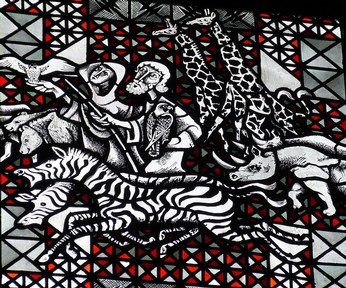Quiz Answer Key and Fun Facts
1. According to Genesis 20:14, the king of Gerar gave Abraham oxen as well as sheep and male and female servants. What was the name of the king who made the presentation to Abraham? (In the NIV, the king's name is spelled slightly different.)
2. According to Exodus 24:5, who ordered the Israelites to offer burnt offerings and sacrifice peace offerings of oxen to the LORD?
3. What rich man in the Old Testament owned five hundred yoke of oxen?
4. According to 1 Kings 19:19, what prophet of God plowed a field with twelve yoke of oxen?
5. 2 Samuel 6:6 tells of oxen pulling the ark of God and when the beasts stumbled, a man put out his hand to take hold of the ark and then was struck dead. What was the man's name?
6. A passage in the Old Testament states God has given man dominion over the works of His hands and "have put all things under his feet, all sheep and oxen, even the beasts of the field." In what book do you find such a statement?
7. Proverbs 14:4, in the NKJV, states: "Where no oxen are, the trough is clean;
but much increase comes by the strength of an ox." Who is credited with writing much of the book of Proverbs?
8. "And to any hill which could be dug with the hoe, you will not go there for fear of briers and thorns; but it will become a range for oxen and a place for sheep to roam," is a statement made by a prophet of God. Who made the statement?
9. In the Parable of the Wedding Feast, Jesus tells of a man proclaiming his oxen and fatted cattle have been killed for a gala banquet. In what Gospel do you find the Parable of the Wedding Feast?
10. Acts 14:13 tells of Paul and Barnabas becoming angry when they saw a priest of Zeus bringing oxen to the gates of the city, "intending to sacrifice with the multitudes." In which city did the incident take place?
Source: Author
Cowrofl
This quiz was reviewed by FunTrivia editor
looney_tunes before going online.
Any errors found in FunTrivia content are routinely corrected through our feedback system.
